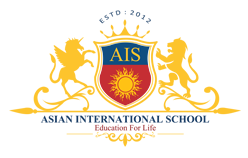Pointers to help navigate the rough realities of peer pressure as a student

Within the ever-evolving realm of Indian educational institutions, students frequently confront the challenges posed by peer pressure. The constant drive for academic achievement, intertwined with societal expectations of success, fosters an environment ripe for stress and anxiety among students.
This thorough guide seeks to explore the intricacies of peer pressure, dispel prevalent misunderstandings, and offer empirically supported and our adopted approaches to foster mental wellness within educational environments.
Understanding the Impact of Peer Pressure:
Peer pressure, a powerful force in the lives of students, exerts a profound influence on their psychological state and academic achievements.
The National Institute of Mental Health and Neurosciences (NIMHANS) conducted a revealing study, shedding light on the extent of this phenomenon. Findings indicate that a staggering 70% of Indian students grapple with moderate to high stress levels, attributing this distress to the dual pressures of academic demands and the constant scrutiny of their peers.
This stress, emanating from the desire to meet societal expectations and compete with peers, can manifest in various detrimental ways, impacting mental well-being and academic performance alike. Students often find themselves trapped in a cycle of comparison, feeling compelled to measure up to their peers' achievements, leading to heightened anxiety and decreased self-esteem.
Consequently, this pervasive influence of peer pressure underscores the critical need for comprehensive support systems within educational institutions to address student's psychological needs and foster a healthy academic environment conducive to growth and development.
Chart 1: Percentage of Students Experiencing Stress Levels Due to Peer Pressure
| Stress Level | Percentage of Students |
|---|---|
| Low | 15% |
| Moderate | 45% |
| High | 40% |
Demystifying Misconceptions:
One prevalent misconception perpetuated by societal norms is the belief that academic success, as measured by percentages, is the sole determinant of future prospects. However, empirical evidence suggests otherwise.
A longitudinal study conducted by the Indian Institute of Management (IIM) found that while academic performance is a factor in career advancement, other qualities such as leadership skills, communication abilities, and emotional intelligence play equally crucial roles.
In a corporate setting, consider Rupa, a top performer in her MBA program, consistently scoring high percentages. Many assumed her success was a guarantee for future career triumphs. However, in a longitudinal study, it was revealed that Rupa's journey wasn't solely dictated by her grades. Despite her academic excellence, Rupa's lack of effective communication and leadership skills hindered her progress. Conversely, her peer, Priya, though not a top scorer, showcased remarkable emotional intelligence and leadership prowess, propelling her swiftly up the corporate ladder. This real-life example underscores the fallacy of solely equating academic success with future prospects.
Chart 2: Factors Contributing to Career Advancement
| Factor | Contribution to Career Advancement (%) |
|---|---|
| Academic Performance | 30 |
| Leadership Skills | 25 |
| Communication Abilities | 20 |
| Emotional Intelligence | 25 |
Emphasizing Individual Growth:
Each student possesses unique talents, interests, and aspirations that cannot be captured solely by academic metrics. Encouraging students to explore their passions, cultivate diverse skill sets, and pursue extracurricular activities fosters holistic development and resilience.
A survey conducted by the All India Council for Technical Education (AICTE) revealed that 80% of employers prioritize soft skills and personality traits over academic qualifications when hiring candidates.
Chart 3: Employer Preferences in Hiring Candidates
| Attribute | Percentage Preference |
|---|---|
| Soft Skills | 50% |
| Academic Qualifications | 20% |
| Personality Traits | 30% |
Promoting Mental Well-being:

Incorporating mental health education and support services within educational institutions is paramount in addressing the adverse effects of peer pressure. According to the World Health Organization (WHO), investing in mental health promotion programs yields a return of ₹334 for every ₹84 spent, emphasizing the cost-effectiveness of preventive measures.
Fostering a Supportive Environment:
Educational institutions play a pivotal role in creating a nurturing environment that prioritizes student well-being over competition. Implementing peer support groups, mentorship programs, and stress management workshops can mitigate the negative effects of peer pressure and foster a sense of belonging among students.
Encouraging Balanced Perspectives:
As educators, it is imperative to instill in students a balanced perspective on success and failure. Teaching resilience-building strategies, such as cognitive reframing and mindfulness practices, equips students with the tools to navigate challenges and setbacks effectively.
Peer pressure remains a prevalent issue in global educational institutions, significantly impacting students' mental health and academic performance.
By debunking misconceptions, promoting individual growth, prioritizing mental well-being, fostering a supportive environment, and encouraging balanced perspectives, educators and counsellors at Asian International School empower students to thrive academically, emotionally, and socially.
Remember, success is multifaceted and encompasses not only academic achievements but also personal growth and fulfillment.

- New Korolah, NH-6, Alampur Howrah - 711 302 (Near Kona Express Highway)
- +91 96742 77777, 90073 65555
- info@aisedu.org
Copyright © Asian International School. All rights reserved. | Terms & Conditions | Refund Policy | Privacy Policy



